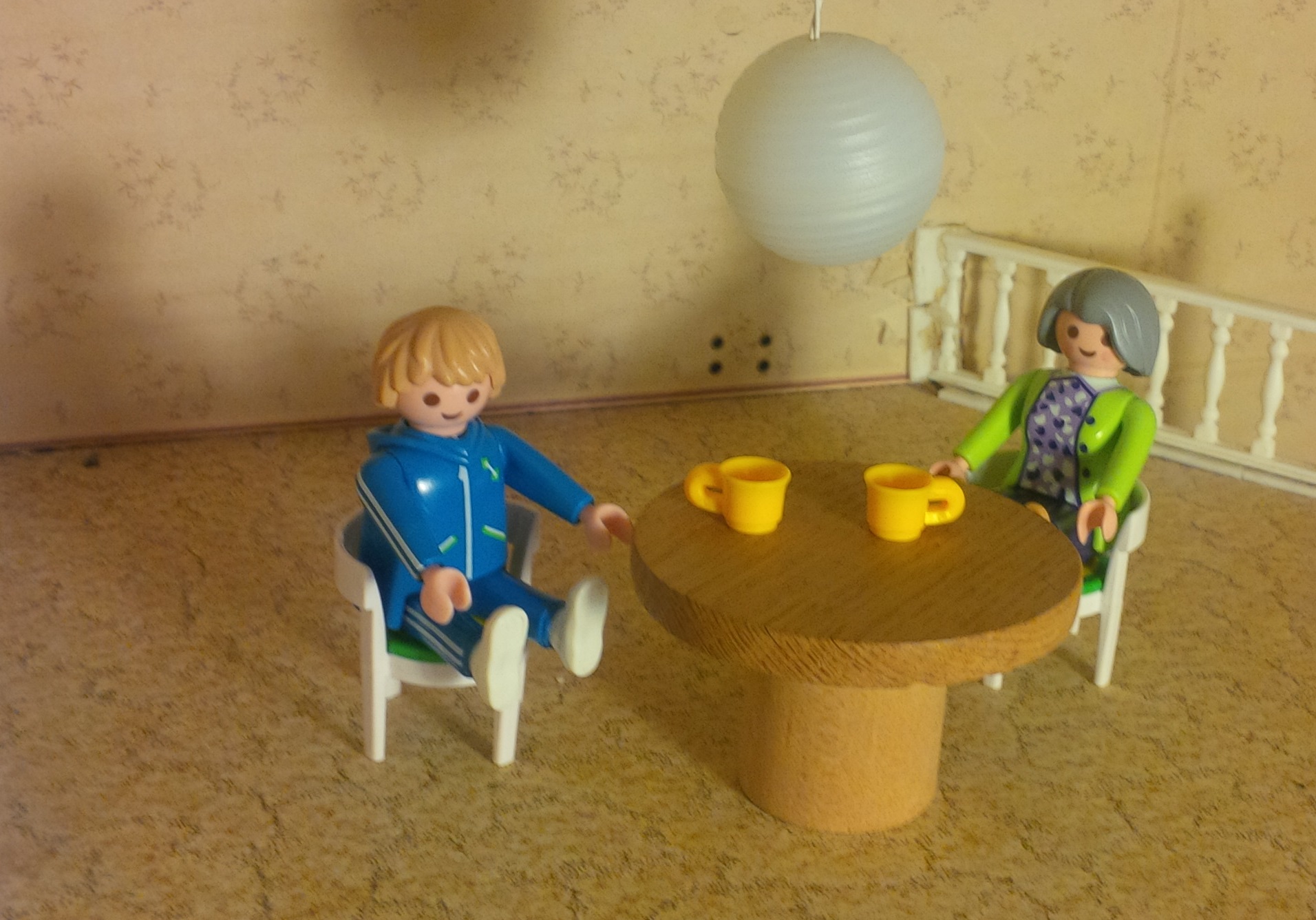At the hospice I visit from time to time, there is a list in the staff room of things not to say. It’s a good reminder that even the things said by well-meaning people can be difficult for people to answer if they are dying or watching a loved one die. Among the expressions on the list are trite little sayings like “Everything will work out for the best,” and “It’s time to move on.” Those two seem obviously insensitive, but the list exists because these things are not obvious to everyone. So, when I set out to visit seniors, or people that are ill, I am equipped with nice things to say, and I’ve even trained myself not to say a long list of potentially hurtful things. But one of my common greetings, is also near the top of this list.
“How are you doing?” is a funny greeting. There are really only three permissible responses. If you are doing slightly better than fine, you say something along the lines of “pretty good, actually,” where you admit that doing well is an anomaly. If you are doing slightly worse than fine, you say something along the lines of “not the greatest,” as though it were no big deal. If you are doing fine, of course you say that. Also, if you are doing extremely well or extremely poorly, you just say “fine” because you know that nobody wants to hear about your extreme emotions.
More than once I’ve asked someone how they are doing and only realized once those words left my lips that they might not be ready to answer that otherwise rhetorical question in an honest way, and I might not be prepared to hear their answer if they feel free from the normal restrictions connected to that question. One group that seems to be unaware of these unwritten laws are the seniors that I have had the pleasure of visiting as a pastor. When I ask them how they are doing, a funny thing happens, they tell me.
Obviously, when people tell you they are doing well, it’s your job as an active listener to rejoice with them. On the flip side, we understand that when someone tells us they are not doing well, that we should build them up and discourage any more negative thinking. Sometimes it is the possibility of hearing negative thinking that makes us think twice before we ask someone how they are doing. But when someone has experienced major loss or when they are facing their own impending illness or death, “negative thinking” is a fairly relative term.
In some of my pastoral visits, I have been naive enough to think I could cheer up someone in these shoes. I have also felt the urge to cower away from the obvious topic on their minds. The real challenge is to be present in a conversation that might otherwise seem uncomfortable. If you can do that, you might actually accomplish some good.
The other day I was chatting with a guy who has started to give away some of the things he has made over the years. I complimented him on his handiwork and on his generosity. His response was humble and dismissive, like I expected, but also a little bit dark. He said, “I would much rather give these gifts away with a warm hand than a cold one.” My first instinct was to discourage this kind of thinking, but not only is this where he is at, there is some profound wisdom in what he said. A wonderful conversation about the need to downsize and our desire to leave a legacy followed.
Another senior told me about a few recent hallucinations where the deceased spouse was observed in the house. That might have been a problem for other people. A clinical diagnosis would have been unhelpful at this time. My expressions of my own personal comfort level with these sightings would probably have brought the conversation to a premature end. What followed was an admission that these “visits” were welcomed and a happy reminder of the emotional and spiritual connection they formed during their life.
I also visited an older couple with a similar penchant for uncomfortable honesty. They welcomed me in and offered me a cup of coffee, which I accepted. Shortly after sitting down in their kitchen, I asked, “How are you doing?” They had both received significant medical attention recently and I knew that their children were worried about the state of their health. They knew that I was asking in response to their health but they were quick to dismiss my concerns.
“Well,” she said, “we’re still buying green bananas.” It really didn’t seem all that optimistic to me that they expected to outlive the produce in their house. Then, as though she saw that I wasn’t convinced, she giggled and showed me the 1 kg tub of peanut butter she had purchased the week before. People my age don’t talk so freely about their own death, but they also don’t need to estimate their lifespan when they’re buying groceries. If I just stuck with people my own age, I wouldn’t have been able to hear about what it means to live fully in the moment with a very real sense of your own mortality.
Not everyone will respond to illness and aging with a sense of humour, but facing death and loss will bring people to a different way of looking at things than the rest of us will be prepared for.
This post is part of a MennoNerds Synchro-Blog on the topic of Death, Loss, Pain and Grief, July 14-30, 2013. Check out our page on MennoNerds.com to see all the other posts in this series.

Leave a Reply